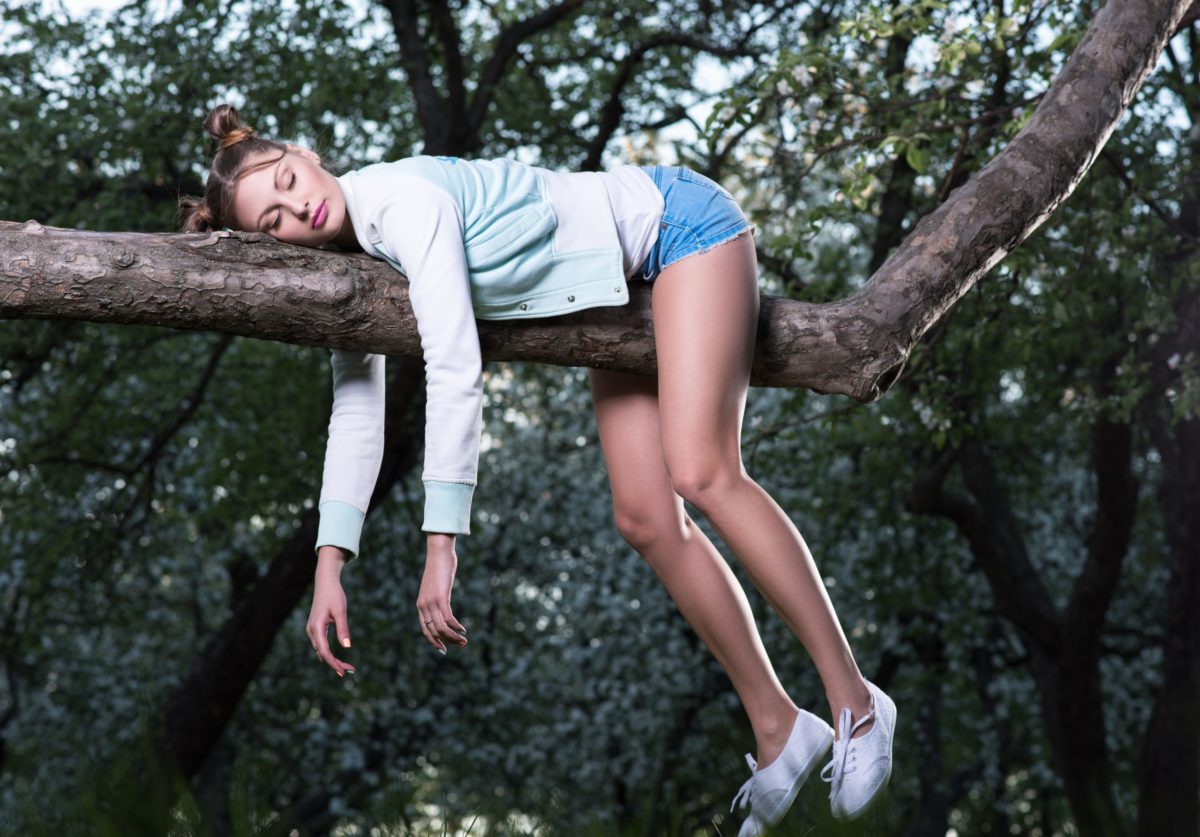
Sleep loss – the silent epidemic
I was a notoriously bad sleeper for many years so I know how much sleep deprivation affects your life. You aren’t yourself when you are sleep deprived. I went through stages of using sleeping pills, both prescription and herbal. Both made me feel better temporarily because I “slept” but like many I suffered from the psychological addiction to them. The fear of not being able to sleep without them caused me not to sleep. Or if I knew they were in my bedside draw I wouldn’t be able to sleep knowing they were just in there and if I took one I was guaranteed to fall asleep. So I’d have to take one. No one ever explained to me about the mechanics around sleep, how to manage my stress in order to calm my mind before bed or how to undo the conditioning around my bed and sleeping. There is so much you can do to improve sleep and I want to help others find the absolute pleasure of a full 8 hours natural sleep every night!
Sleep has been described by neuroscientists as the ‘Swiss Army Knife’ of health. It is the single most effective thing you can do to reset the brain and for body health. It is so important that every creature on the planet has evolved to need sleep, however humans are the only species that will deliberately deprive themselves of sleep without legitimate gain.
We all know that a poor diet/obesity, smoking and drinking are leading causes of cancer and other diseases, but what many don’t know is that sleep loss is also a significant contributing factor. Less than 6-7 hrs of sleep a night damages the immune system so much that it more than doubles your risk of cancer. Every organ in the body and every process in the brain is detrimentally impaired by not enough sleep. Sleep disruption contributes to:
- all major psychotic conditions ie depression, anxiety, suicidality
- likelihood of cardiovascular disease, stroke and congestive heart failure
- reproductive/fertility issues
- poor physical performance
- damage of genes & DNA
- poor immunity
- cancer
- difficulty losing weight
In a nutshell, the shorter you sleep = the shorter your lifespan!
With 66% of adults in developed nations getting less than 8 hours sleep a night it is not a surprise that the World Health Organisation (WHO) has declared sleep loss an epidemic in industrialised nations.
How do you know if you are getting enough? If you are not getting 8 hrs quality sleep a night, you are not getting enough. If you are a notoriously bad sleeper, don’t despair, there are so many things you can do to help your body and mind prepare for sleeping. Learning to sleep again takes time and consistency but it is well worth the effort in the end.
Here are some helpful tips to get you started!
Stick to a sleep schedule (even on the weekends!)
Set an alarm for bedtime and alarm for wake time. Sleeping in on the weekend won’t make up for lost sleep during the week and it will only make waking up on Monday harder.
Exercise
Try not to exercise later than 2-3 hours before you go to bed.
Stop drinking coffee!
One of the main systems that causes you to sleep is the build-up of the chemical Adenosine. Adenosine builds sleep pressure all day and when its concentration is at its peak you get that irresistible urge to sleep. This generally happens after 12-16 hours of being awake.
Caffeine competes with Adenosine for receptors in the brain. Once caffeine occupies the receptors it blocks and deactivates the receptors acting as a masking agent – like sticking your fingers in your ears to block out sound. Caffeine has a half-life of 5-7 hours meaning that 5-7 hours after consumption you still have 50% of it in your system. Age decreases the rate at which we can eliminate caffeine making us more sensitive to it as we get older.
But I drink decaf I hear you say? Decaffeinated coffee is not caffeine free! It still has about 15-30% of the regular dose (and if you knew how they extracted the caffeine you probably wouldn’t drink it!).
Don’t drink alcohol
It is a myth that a “night cap” will help you sleep. Brain waves of a ‘sleeping’ person who has consumed alcohol are not the same as someone sober. The brainwaves of the person under the influence of alcohol are more similar to anaesthesia. Sedation is not sleep! All the good stuff that happens during natural sleep do not happen when we are sedated.
Alcohol also fragments sleep. The sleeper may be unaware of their sleep being littered with brief awakenings and because the sleep is not continuous, it is not restorative. Even consuming small – moderate amounts in the afternoon or evening will affect your quality of sleep.
Quit smoking
Nicotine is a stimulant causing smokers to sleep very lightly. To add to this, smokers often wake up early due to nicotine withdrawals.
Avoid large meals/drinks late at night
A light snack is ok but a large meal can cause indigestion which will interfere with your sleep. Drinking too much fluid will also cause you to wake to use the bathroom.
No naps after 3pm
Power naps may momentarily increase basic concentration if you are sleep deprived but they cannot salvage the more complex functions of the brain ie learning, memory, emotional stability, complex reasoning and decision making.
If you need to nap as a result of sleep deprivation, make sure it is before 3pm so you don’t have trouble falling asleep that night. Naps are not recommended at all if you are getting sufficient sleep.
Sleep in a cool room (ideally 18.3 degrees)
To successfully initiate sleep your core body temperature needs to drop by 1 degree Celsius. Our ancestors used to sleep outside where the temperature naturally drops at night time initiating sleep. This doesn’t happen these days with heaters, pyjamas and temperature control. It might help to buy a thermometer for your bedroom so you can start to monitor the temperature of the room and make adjustments where necessary ie turn the heating off or down in the bedroom.
Sunlight exposure
Go outside into natural light for at least thirty minutes a day. If possible, wake up with the sun or let the light in in the morning (or if no sun, use bright lights).
Manage your light (both in your home and on your devices)
If you have dimmers on the lights you should definitely use them after dusk and have them as low as you can (to mimic the outside light). Despite LED lights being more environmentally friendly, the old incandescent light bulbs are more conducive to sleep. Red wavelengths of light are the most conducive to sleep so you could try installing red (or even pink) bulbs in your bedroom or bedside lamps.
Blue light which is emitted from phones, laptops and LED lights will cause delays in falling asleep but it will also affect the quality of sleep and you will feel less rested in the morning.
Check to see if your smart phone/ipad has a ‘night time’ setting. Many of them have the ability to warm the light at night time.
Noise & Pets
Your pets on the bed or the floor will wake you up when they move or snore. Kick them out of the bedroom (I know how hard this is but it is worth it!). Same goes for partners I’m afraid. If your partner snores I cannot recommend sleeping in separate rooms highly enough. If your partner is causing you to have poor sleep it is damaging your health. You can’t be a good partner when you are sleep deprived so please consider this as an option.
EMR
Electromagnetic radiation from wifi and phones. There are so many arguments and so many studies both supporting and denying claims about this. My stance is that we know for sure that certain types EMR have negative effects on human health so it is possible that sleeping next to your phone or close to your wifi will lead to interrupted sleep. Our DNA has not evolved to deal with such a high level of EMR exposure so I’d rather just turn my phone and wifi off at night. It certainly won’t do any harm.
Don’t fast
Restricting calories can impact your sleep. By significantly restricting calories (usually less than 800 a day) you will put your body into starvation mode. Your body will keep you awake so you can search for food – the only thing more important to your body than sleep.
Manage your stress
Our stress response has been designed to be able to fight or flee from predators. When our stress response is activated our core body temperature increases, our metabolic rate increases, our stress hormones are released our heart rate increases which are all great things if you need to run for your life but not great if you want to sleep.
Learning to manage stress is not only hugely beneficial to your health it will also mean a better night sleep.
Don’t lie in bed awake
If you haven’t fallen asleep within 20 minutes and are starting to feel anxious, get up and leave your bedroom. Do an activity such as reading until you start to feel sleepy again. Then return to your bed.
Other tips
Clients have also had success with using either white noise apps (which are often used for babies), guided sleep meditation or calming music all set on a timer for 10-15 mins whilst you fall asleep. If you are more like me and these aren’t enough distraction from your busy mind you could try Blinkist or other audio books/story telling apps. Blinkist is an app where they summarise books into a 15 minute audio. I never make it past about 3-5 minutes! If you download these you can play them whilst the phone is on airplane mode so you don’t have to leave your phone on.
If you are still having trouble sleeping there are more tricks up any good CBT-I (Cognitive Behavioural Therapy for Insomnia) therapists sleeve!! CBT-I is an evidence based approach to combating insomnia and is usually recommended as the first line of treatment. Unlike sleeping pills, CBT-I helps you overcome the underlying causes of your sleep problems.
Life is pretty horrible when you are battling with sleep deprivation and dreading the nightly insomnia routine. If this is you, you are not alone and there is hope. I cannot recommend finding a sleep coach or CBT-I therapist highly enough. Your body wants to sleep. Millions of years of evolution went into fine tuning sleep so you can do it, and once you get back into a quality sleeping routine it will change your life!
Reference:
Walker, M 2018 Why We Sleep: The New Science of Sleep and Dreams, Penguin Random House, UK.


